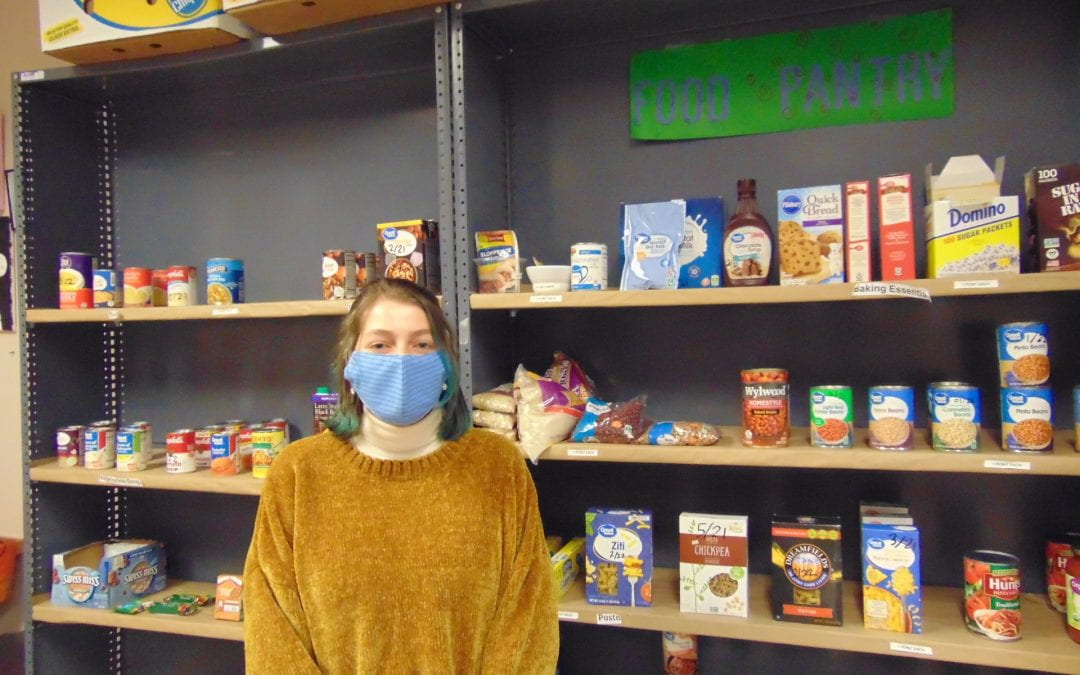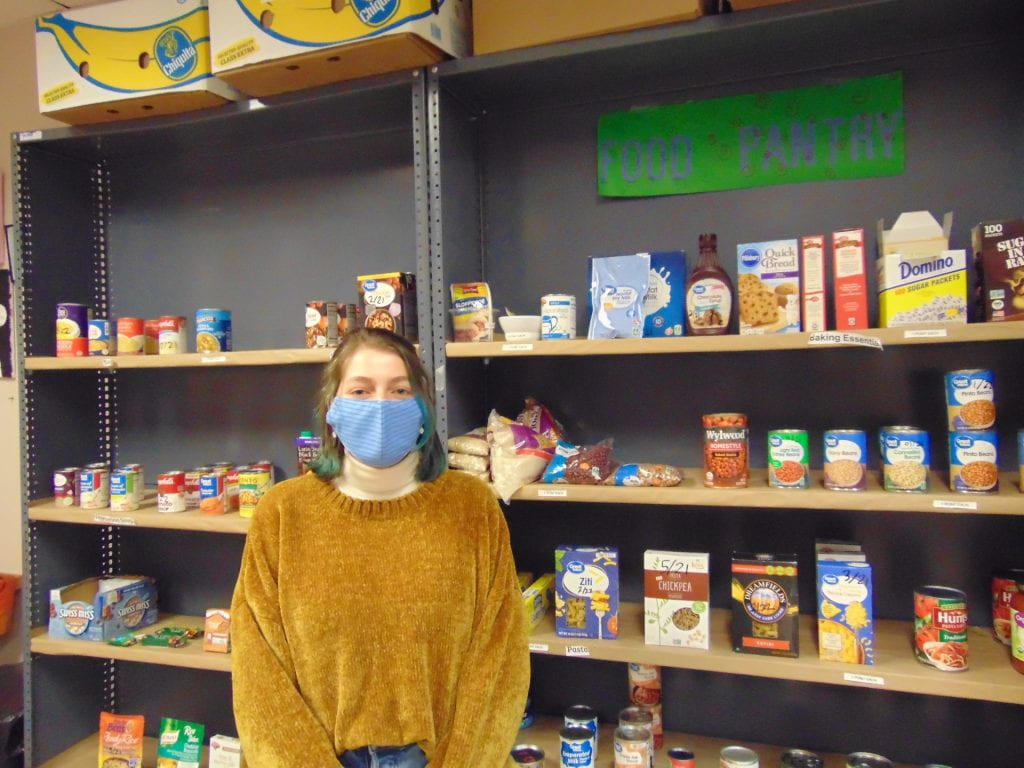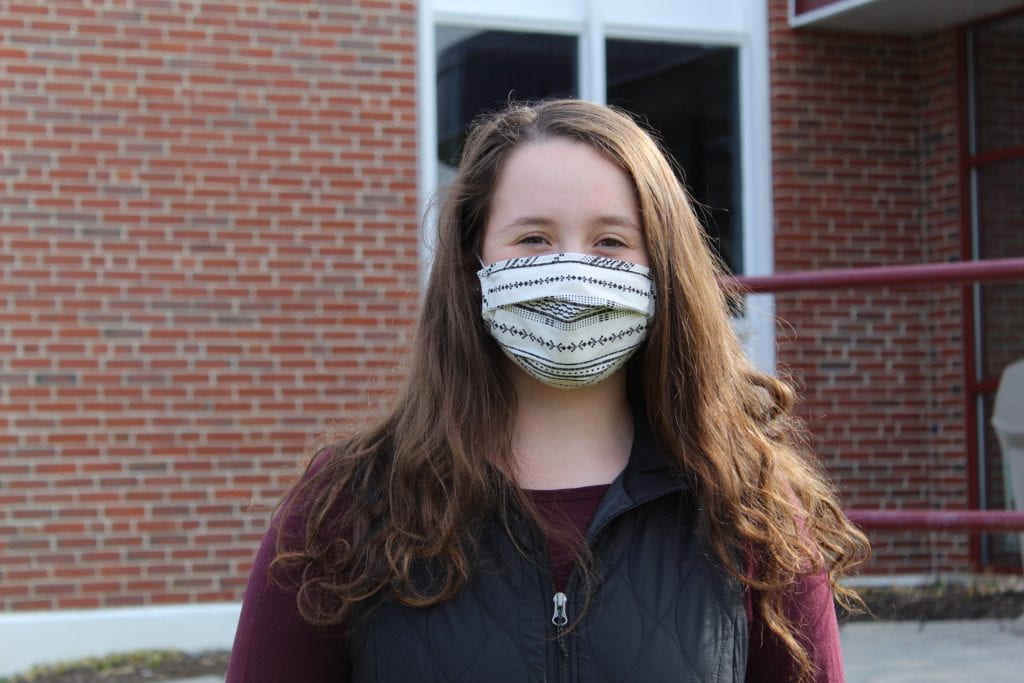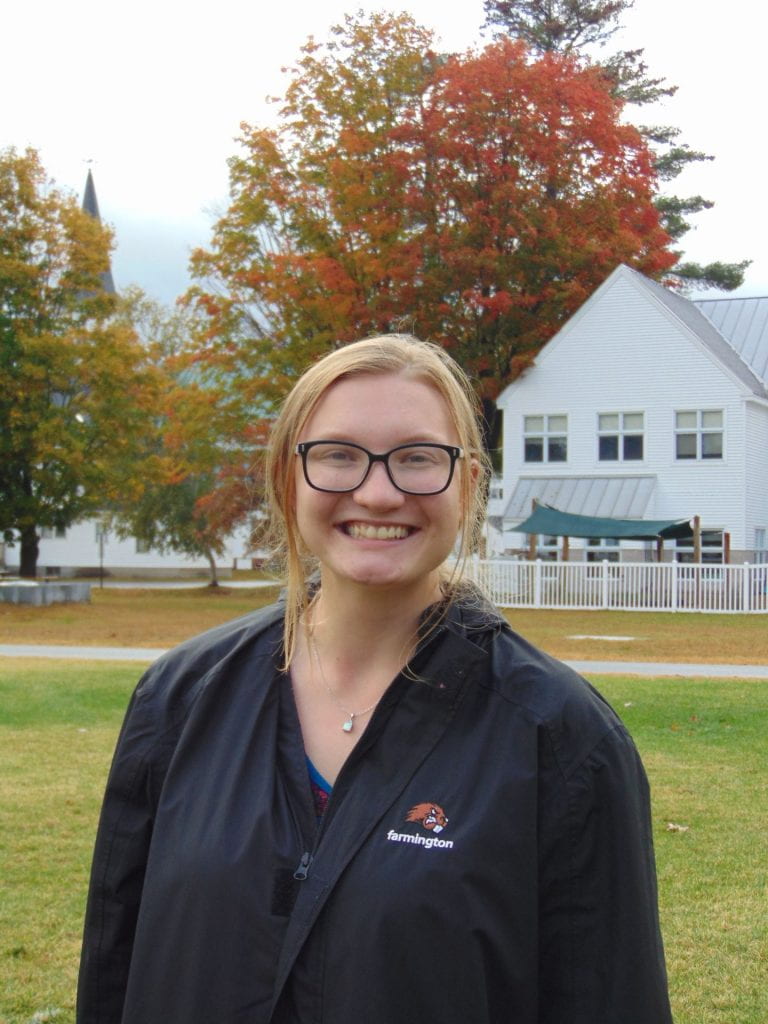Nov 12, 2020 | Feature, Satire |
By Anonymous
As everyone knows (literally everyone) we have to wear these damned masks around campus nowadays.
They’re either floral, or black, or grey, or blue whatever the wearer chooses (seriously whatever). Frankly I myself have seen some major fashion faux pas around campus since the day we got here. I’ve seen abominations from striped masks with a polka dot shirt to a chartreuse mask with an amarillo sweater.
Don’t even get me started on the fact that I simply know for a fact that students aren’t washing their masks after they use them. We saw that you missed your mouth and spilled on to your mask and you have the AUDACITY to wear that same mask the next day with the same stain. Who are you fooling?
That’s not even the worst part (yes it can get worse), these masks are so uncomfortable it’s so hard to breathe in them. Karens around the world have come together to create a fake religion that allows them to not wear these abominations out anymore.
I propose that we follow these middle aged white women who have fits over expired coupons and band together and join them. You know what they say, “if you can’t beat ‘em join ‘em”. As an act of our rebellion I am planning a “mask release ceremony” where all participating UMF students buy balloons, tie their masks to them, and set them free into the heavens. As implied masks will NOT be worn and social distancing will NOT be in place, shoulder to shoulder we shall stand in solidarity.
This party will promptly be following Halloweekend where local students have already started showing their support by partying in their dorms with of course, no masks on.
I am particularly excited to see how many new cases we get on campus after this. “It’s a fun game I like to play with my roommates,” said Senior, Abe Keller at University of Maine at Orono. “We check to see how many cases we’ve gone up by each week and estimate when we’re going to get sent home,”.
Keller doesn’t care about the virus however, “It’s all a scam, the big pharma companies want you to believe it’s real; somehow Steve Jobs is tied into this I’m sure of it,”.
While some students may be reluctant to change the mask policy I do believe that once we all come together and show the virus we aren’t scared of it, all this madness will subside.
This article is purely for satirical purposes. The names in this article do not reflect the views of the individuals.
Nov 12, 2020 | Feature |
by Nevaeh Rush, Vice President
A number of students this year at UMF have chosen not to enroll in the Fall semester due to the ramifications of COVID, and rather choosing to take the semester off.
Cylus Hill-Yastek, fourth year and creative writing major, is one of them. “I did not want to contribute to any possible spread with our community being so small,” Hill-Yastek said. “Our campus and our town are so connected.” Hill-Yastek, feeling frustrated with the way things have been handled, made a personal decision not to enroll in this fall semester because he did not want to take in-person classes.
“I would have done online classes, I wanted to,” he said. “My options though were super limited. There were no creative writing classes that I could take available.” The only classes that were offered to Hill-Yastek were typical general education [gen-ed classes] that he had no interest in taking. “After moving online last semester, I felt more prepared to do it again,” he said. “Although the gen-eds I could have done would have been okay, I would have liked to further my degree progress more in creative writing.” Hill-Yastek chose not to fill a semester and pay for general education classes he may not have needed, just because they were his only option.
“I am a devoted academic, I care about school and what I am doing,” he said. “Last year was no expectation, even when the semester went to shambles.” Hill-Yastek, a Dean’s List student, feels saddened to not be in classes this semester. “It is not a choice of not doing school because I don’t want to,” he said. “It is the fact that I even lost my job because I wanted to isolate myself from this pandemic and not be exposed.”
“We should have had a wider range of options and accommodations for students who did not want to be in person, such as myself.” he said. Hill-Yastek, among others, would feel anxious being in class and on campus, which would reflect the quality of their work being put out.
Destiny Clough, second year, Psychology major, feels the same. “There was not enough certainty when it came to my classes.” she said. Many students, even those who chose to attend this semester, feel the same when it comes to the uncertainty of classes and how campus was going to be run.
Cough is a student athlete, participating in track and field. “My sport is a huge motivator for me in school,” she said. “Seeing the struggles of how and if we were going to be able to participate was hard.” Not being able to have the normalcy of a typical sports season was something that pushed Clough to the decision of taking a break from academics this semester.
Clough and Hill-Yastek both felt as though student concerns were not given enough consideration. “Although there were emails,” Clough said. “I feel that there should have been more surveys, for the comforts of the students,” adding “I wish that they had made the transition last semester a little more comfortable,” she said. “That is why myself and others are not coming back this semester, because that transition was so rough.”
Hill-Yastek now faces the tough decision about the spring semester; The future is still unpredictable and there is nothing that the campus can do about that in and of itself. Students such as Hill-Yastek who receive scholarships and grants, face the uncertainty of whether they lose those or not. These financial dilemmas hold great importance in the decision for students choosing whether or not to come back.

Nov 12, 2020 | Uncategorized |
By Madison Archer, Contributing Writer

Twilight Smart-Benson, one of the Thrifty Beaver’s student workers. (Photo courtesy of Sam Shirley)
In the basement of the Fusion Center there is a room filled with donated supplies. Clothes, food, kitchen supplies, school supplies, textbooks and personal hygiene items. The Thrifty Beaver (TB) is a student-run food pantry and clothing exchange, aimed at helping UMF students “not fall through the cracks” said Mark Pires, Interim Sustainability Coordinator.
The Thrifty Beaver (TB) has made some compromises in how it is run to ensure safety is possible for students. Reduced hours and limited stock have proven to be struggles for the Thrifty Beaver.
Although new to campus, Pires has been hard at work along with its dedicated student workers trying to help the “Thrifty” get ready for students to utilize during the pandemic. Pires and the student workers have had to put away some items, like kitchenware, due to concerns of touching and passing items around. They also shut down the fitting room where students could try on the clothes that have been donated.
There is only one person allowed in TB at once and there is space in the hallway for students to wait as well. Things like prearranged hygiene bags are ready for TB customers to grab and go.
TB relies on donations from the UMF community and the Farmington community. “Typically our funds are given from the school. So we will have a once a month, big shopping trip that is school funded. That allows us to supply food to all kinds of students,” said Chelsea Roy, a sophomore environmental science and anthropology major. Roy is also involved with Sustainability Campus Coalition (SCC) which is the group that manages Thrifty Beaver.
In the past, donations have come in from current students, alumni, professors, The United Way and The University Credit Union. Alumni acknowledge the significance of the Thrifty Beaver. “Alums come in still,” said Roy. “I ran into an alum my last shift! She recognized that the Thrifty was a really vital resource and she came back to donate food.”
There are about a half dozen students employed by TB in addition to volunteering students. Pires had nothing but praise to give to the students who have been keeping the TB open. “As I become more familiar with the members of the SCC, I think that their devotion and commitment to keeping the Thrifty Beaver up and running even during COVID times is really impressive,” said Pires.
Both Pires and Roy agree that the TB is important to the campus and its students. “You know many students are on very tight budgets,” said Pires. “Here and at other campuses they might not have the resources for a full meal plan every semester. I think organizations like the SCC and TB fill an important role and need.”
Some upcoming projects that the TB is working towards includes making a commercial to feature well-known figures on campus. The other project is revamping their website to include an updated catalog of their inventory.
The Thrifty Beaver is located in the basement of the Fusion Center. They’re open Thursdays and Sundays from 4 p.m. to 7 p.m.

Nov 12, 2020 | Feature |

Sophomore Emily Cetin (Photo courtesy of Abbie Harrington)
by Sydney Beecher, Contributing Writer
Despite the challenges and restrictions COVID-19 has created, a handful of faculty members are hoping to offer a variety of travel courses this upcoming May.
Half of the travel courses have already been postponed until 2022 and there is a chance more will follow suit. “Most have been postponed until the next academic year, but there are several that are waiting to see how COVID pans out this winter,” says Associate Dean of Experiential & Global Education Linda Beck.
Dr. Beck aids to promote and administers the risk management issues surrounding travel courses. She and Lynne Eustis, the Assistant Director of Global Education, have been working with colleagues across the University of Maine System to manage study abroad courses during the current COVID pandemic.
Beck and the professors who plan to lead travel courses in May are investigating how to address a number of issues regarding international and domestic travel. They are hoping to find answers to questions similar to: “Are the destinations accepting foreign travelers, specifically Americans? Is there a quarantine requirement in the destination country? Can our faculty and students travel safely to and within the country?”
All travel courses need to take a variety of factors into account to operate. “Everything from border closures, lack of visa processing, mandatory 14-day quarantines upon entry into host countries, mandatory COVID testing upon entry, restrictions for hostel stays and modes of in-country transportation to concerns for handling student COVID cases are factors that must be considered when making decisions if programs can run,” said Lynne Eustis. If a travel course cannot meet those requirements or factors, then the course may be postponed or canceled.
At the moment, there are five travel courses being offered in May 2021. These include courses to Germany, Iceland, Nepal, and the United Kingdom (Shakespearetanan). The courses that have been postponed until 2022 include Croatia, Boston, New York City, and the United Kingdom (Rehabilitation). In addition to these postponed courses, other faculty may propose courses for 2022 as well. As a political science professor herself, Beck plans to offer once again her travel course, Ecotourism and Environmental Activism in Tanzania, in 2022.
Although the immediate future of travel courses is surrounded by uncertainty, it is important to realize the opportunities they can provide to students. Emily Cetin, a rising sophomore who participated in Beck’s Tanzania travel course in winter 2020, decided to attend UMF precisely because of the travel courses the university offered. “They offer students such amazing opportunities to get out of the classroom and immerse themselves in the real world. Engaging with people and learning about their lives in person is much different than simply being lectured in a classroom by a professor.” Cetin also expressed that going to Tanzania became life-changing. “The things I learned and helped with, from planting trees to making reusable pads for women, I brought home with me. The trip helped me narrow down what I want to do in life. While I was on the plane headed back home, I was already planning on which travel course I wanted to go on next.”
To find the latest information about travel courses and descriptions about each program, visit https://www.umf-experience.org/travel-courses or email Linda Beck at linda.beck@maine.edu.

Oct 13, 2020 | Feature |
by Madison Archer, Contributing Writer
The UMF Dance Team is looking for members to join. Last season they lost 4 seniors and concerned students following the pandemic.
COVID-19 has significantly changed sports, clubs and school. For the Dance Team it has made it hard to practice while physically distancing, it’s difficult to find a space large enough to accommodate all members.
Alyssa Leonard, a senior and President of the team, said that finding room is one of their main struggles. “I guess just finding space. I’m sure other groups are dealing with that as well,” said Leonard.

Alyssa Leonard, President of the UMF Dance Team, has elaborate plans for the team to dance safely this season.
Photo courtesy of Sam Shirley.
In the past, the Dance Team has performed at TD Garden in Boston during Celtics games. This past March, their trip was cancelled due to COVID-19. “I don’t think [the trip] will happen this year,” said Leonard. “But the hope will be that we can set the team up to be financially ready to do it the following year.”
The team normally performs at halftime during UMF basketball games. Now, there are new COVID regulations where fans are unable to watch in person. The Dance Team has decided to focus on learning routines, having fun and creating workshops. “Right now we’re trying to start [team practices] outside so we will be physically together as much as possible,” Leonard said.
Even though the Dance Team has faced struggles with practicing and performing this semester, they haven’t stopped planning events that could involve the UMF community and beyond. The team is hoping to show a virtual showcase with UMF clubs, such as Clefnotes, Deep Treble, Bust-A-Move Beavers, The Lawn Chair Pirates and the cheer team at the Narrow Gauge drive-in theater for a show for UMF students.
Leonard is also hoping to plan a virtual showcase collaborating with other dance teams from different colleges and universities. “My hope is that we can compile a bunch of things from across New England and then make it into a YouTube video, kind of like a movie for our friends and families to watch,” Leonard said.
For those interested in joining the Dance Team, email umf.danceteam-group@maine.edu. Auditions are not required and students with little or no experience are welcome.



